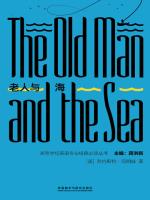111
"Robinson Crusoe" is a timeless tale that has captivated readers for centuries with its themes of survival, resilience, and the human spirit. After reading this classic novel by Daniel Defoe, I was deeply moved by the protagonist's journey and the lessons it imparts.
The story of Robinson Crusoe, a man who finds himself stranded on a deserted island after a shipwreck, is more than just an adventure. It is a profound exploration of the human condition and our ability to adapt and thrive in the face of adversity. Crusoe's resourcefulness and determination in the face of seemingly insurmountable odds are truly inspiring. He builds a shelter, grows crops, and domesticates animals, all while battling the elements and the loneliness that comes with isolation.
What struck me most was Crusoe's transformation from a man seeking material wealth to one who values life's simpler pleasures. His time on the island forces him to reevaluate his priorities and appreciate the things he once took for granted. This transformation is a powerful reminder that true wealth lies not in material possessions, but in the strength of one's character and the ability to find joy in the simplest of things.
The novel also delves into themes of colonialism and the treatment of indigenous peoples, as seen in Crusoe's relationship with Friday, the native he encounters and eventually befriends. This aspect of the story raises important questions about cultural differences and the impact of Western expansion on other societies.
In conclusion, "Robinson Crusoe" is not just a story of survival; it is a reflection on the human spirit and our capacity to overcome challenges. It teaches us the importance of adaptability, resilience, and the value of human connection. This book is a testament to the indomitable spirit of humanity and serves as a reminder that, no matter how dire the circumstances, there is always hope.



 京公网安备 11010802032529号
京公网安备 11010802032529号